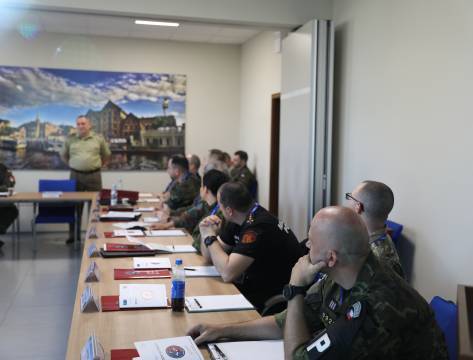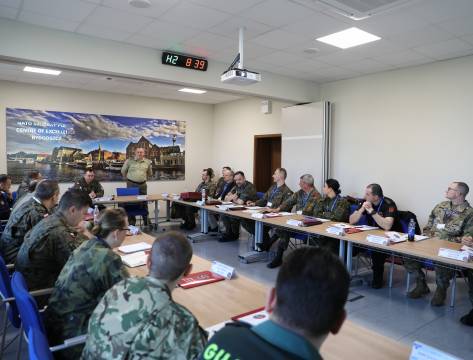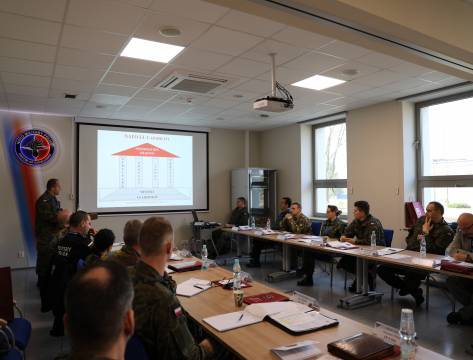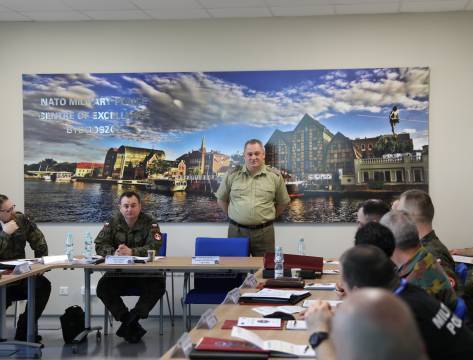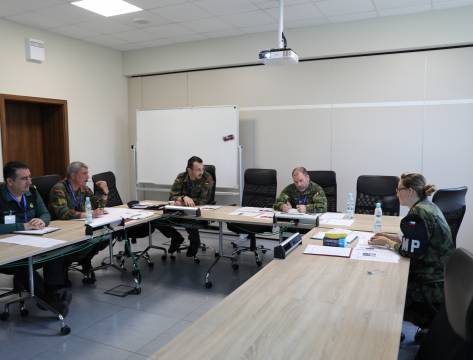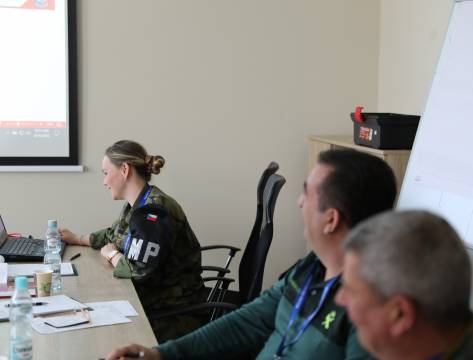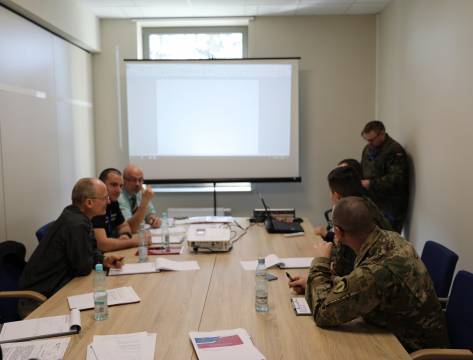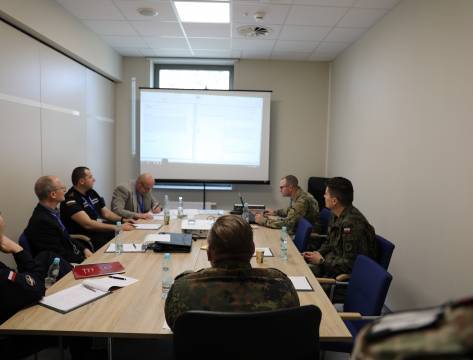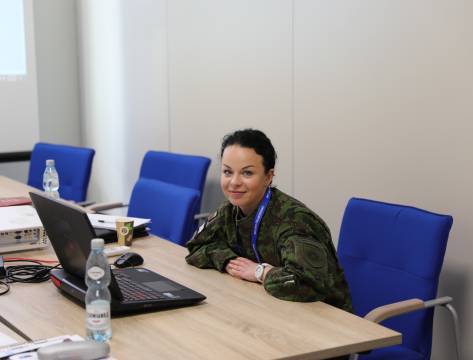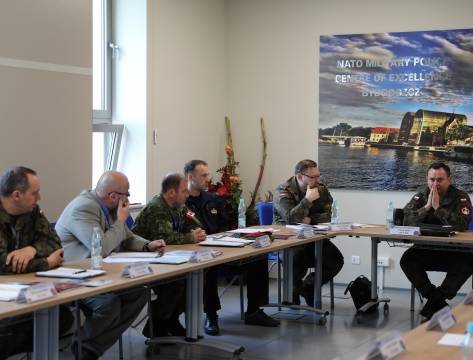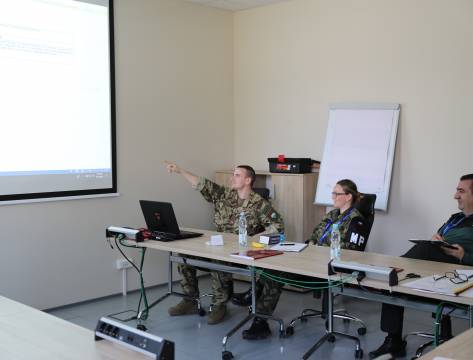0
Events
in April 2018
NATO Military Police Lessons Learned Staff Officer Course 2018
During the course, the COE hosted representatives of 11 countries (BEL, BGR, CAN, CZE, DEU, ESP, HRV, HUN, LTU, POL, USA) as well as other entities, such as, the NATO Counterintelligence Centre of Excellence, EUROGENDFOR and Doctrine and Training Centre of the PAF (in total 17 students). The participants not only learned the NATO Lessons Learned Process but also had a possibility to review their newly acquired skills during intensive syndicate work. It is worth mentioning that the MPLLSOC-18 was provided by the NATO MP COE Lessons Learned Branch staff led by Maj Lukasz Waga that was also considerably supported by subject matter experts from the NATO MP COE E&T Branch, NATO Joint Force Training Centre, Doctrine and Training Centre of the PAF, as well as German Military Police. Compilation of vast experience and consolidated knowledge presented by all experts undoubtedly contributed to getting high recognition which was visible the students’ feedback.
The fundamental aims of the MPLLSOC-18 were to teach students to perform effective MP LL activities within an MP unit, advise with regard to the NATO LL process within the MP functional area, as well as to familiarise the students with the NATO LL process with the focus on elaborating each stage and phase. Furthermore, the course attendees were acquainted with a clear division of roles and responsibilities assigned to all those involved within the process.
MPLLSOC-18 participants gained theoretical and practical knowledge regarding the NATO LL process, i.e. a procedure that incorporates the structure, process and tools necessary to capture, analyse and take remedial action on any issue. They could also communicate and share results to achieve improvement. The course also lecturers concentrated on explaining relatively minor, yet crucial amendments incorporated in the Bi-SC Command Directive 080-006 Lessons Learned dated 23 February 2018.
In summary, the students were encouraged to support their commanders in building up and enhancing the LL capability within the respective units. Furthermore, the importance of a training pillar was repeatedly amphasised during the course as it is evident that its proper exploitation can enable shaping an appropriate mindset, which is of utmost relevance as far as understanding of the LL process benefits is concerned.
